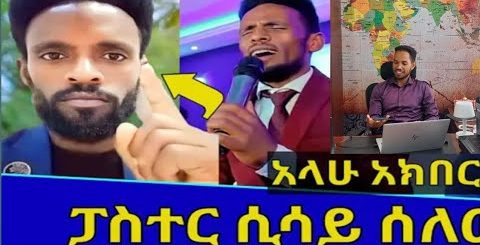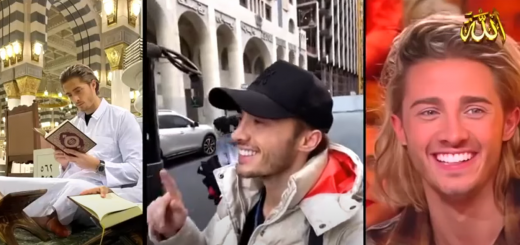Best Example for Youth Today
“Muhammad is not the father of any man among you, but he is the Messenger of Allah, and the Seal of the Prophets, and Allah has full knowledge of all things.” (Al-Ahzab 33:40)
Young people today see a lot of pomp and ceremony when it comes to politicians and leaders. It seems today as though the more authority you have, the more the red carpet is laid out for you, the more special attire and finery you are expected to wear, and the more freedom you have to express your opinions – whether they are held up by evidence or not, and no matter how much they may offend others.
But let’s take a look at the final Prophet (peace and blessings be upon him) and see the stark difference between what is now and what was before.
“Which one is Muhammad?” So humble was the Messenger of Allah (peace and blessings be upon him) that strangers looking for him in the mosque in Madinah had to ask this. Sitting in the row of believers for the daily prayers, Muhammad (peace and blessings be upon him), with his simple and modest bearing, could not be distinguished from anyone else.
He was so calm, so dignified, and so peaceful that no one could single him out as the leader. Children and youth could approach him to receive a warm greeting or to ask this great, yet humble, man a question or some advice. In quiet prayer he looked like any other simple man. There was no sign here of the great warrior, the skillful negotiator in times of war and peace, the statesman. There was no sign either that this was the man, from among all men, who was chosen to receive the Creator’s final message to mankind.
In the mosque his focus was on Allah alone. He was like every Muslim who enters the mosque to pray. And yet, unlike any other Muslim, he had been chosen as the Seal of the Prophets, the most honorable and the noblest of men. He was the one whom Allah selected to guide all mankind.
Orphaned by the age of six and born in a relatively unimportant region of the world to a simple family, Muhammad could neither read nor write. When commanded by the Angel Jibreel to recite the first glorious verses of the Qur’an, Muhammad could only respond that he was unable to read or recite them.
Prophet Muhammad (peace and blessings be upon him) had neither power nor wealth. He possessed none of the things that the world considers important. Yet Allah chose him from all men in the world to be what the Qur’an calls “a mercy to mankind.”
This is the role that young Muslims should take on in this world that is so full of turmoil and hate. The youth are the standard-bearers of the message of Muhammad (peace and blessings be upon him) and it is a message of mercy.
In his person, the Prophet (peace and blessings be upon him) was a mercy to all the people on earth. One so kind, so pious, so devout in prayer and obedience to the will of Allah had been chosen as the guide for mankind.
We should ask ourselves, how closely are we living our lives
according to the message of Muhammad (peace and blessings be upon him). If we are living in his way, no problem will be too great to overcome, our future will appear clear before us, and the challenges of young adulthood will seem small. If young Muslims join in the ranks of the followers of Muhammad (peace and blessings be upon him), they will be joining the ranks of the merciful, pious, and just people through all the ages, from the beginning of time. Indeed, Allah opens the way for those who sincerely obey Him and His Messenger.
Good people should surround themselves with good friends. The Prophet (peace and blessings be upon him) was surrounded by people who sought the pleasure of Allah. Ask yourself: Who do you mix with and why? Your friends reflect who you are.
At the end of his life, when Prophet Muhammad (peace and blessings be upon him) was laid to rest in the earth, his funeral was attended by his heartbroken friends and Companions. They had been with him for so long, many since the time of the first revelation of the Qur’an some 23 years before, and now they were to be left alone, without a guide for the first time in so many years.
Imagine yourself living at the time of the Prophet (peace and blessings be upon him); imagine walking in his blessed footsteps. If you follow his Sunnah, you are walking in his footsteps today.
His body was not laid to rest in some grand tomb as one might expect for so important and so influential a man. Rather it was placed in the earth beneath the spot where he used to sleep on a simple mat. It fell upon Abu Bakr (May Allah be pleased with him), his friend from before the time of the first revelation, to deliver the funeral sermon. Abu Bakr had to try to make sense out of this tragedy for the crowds assembled before him. At this key moment in the development of Islam, they eagerly awaited what Abu Bakr, the closest friend of the Prophet, would have to say. His words to them were filled with wisdom. “O men,” he said, “if anyone worships Muhammad, let him know that Muhammad is dead. But if anyone worships Allah, then know that Allah is alive and will never die.”
Abu Bakr (Allah be pleased with him) told the Muslim faithful that Prophet Muhammad (peace and blessings be upon him) was the greatest man to have lived but he was not the Lord of all creation. He was a man like all men. And this is what makes Islam so extraordinary. There are now at least one and a half billion Muslims in the world, and we are attentive to what our beloved Prophet (peace and blessings be upon him) said or did. Each one of us proclaims at least five times a day that there is no god but Allah and that Muhammad (peace and blessings be upon him) is the Messenger of Allah. It is the core of our faith. In the same breath in which we declare belief in the One true Lord of mankind and all that exists, we declare belief in His Messenger.
The love and reverence which we have for Prophet Muhammad (peace and blessings be upon him) is both real and deep. We see him as the gentlest, the kindest, and the sweetest of men, and yet he remains for us precisely that: a man. Neither a god nor a saint. We do not ascribe to our Prophet magical powers. It would be a blasphemy for us to do so. We see him as a simple man, chosen from among men, with the same cares and worries we might have.
But in Prophet Muhammad (peace and blessings be upon him) we see that it is possible for us to dedicate all our lives to Allah and to live under His guidance, yet live in the midst of life. Not divine, but human like us, Prophet Muhammad showed us by his life and example that Islam is the perfect way of life and that it is possible to achieve happiness by following this way.
If you find your life is taking you in another direction, stop and think. Don’t make decisions in your youth that will take you on a different path that heads away from that of the Prophet (peace and blessings be upon him).
In Islam there are no priests or popes. That, perhaps, is the secret of Islam. There is no special knowledge reserved for a professional religious class. There are no go-betweens between the Creator and the created.
Islam is ours for the taking. How many of us reach out and take what Islam has to offer? How many of us are shining examples of mercy and justice that Islam can develop in us?
Each of us can fall prostrate before our Maker and say what we need to say without the help of anyone else. Just you and your creator! We can see this clearly inside any mosque. Muslim men and women, each in their own place, gather in the mosque for the five daily prayers. They pray together as a community, in congregation, receiving blessings for doing so, yet it is obvious to anyone who looks on that each Muslim is concerned with speaking to his or her Lord individually. It is perhaps this, more than anything else, which makes the place of Prophet Muhammad so strong in the heart of every Muslim.
Muhammad was a man and he found it possible, with Allah’s help, to live out every requirement of Islam. So you and I, then, can try to do the same and, with Allah’s help, we can live out our faith like our beloved Prophet (peace and blessings be upon him).
About the writer:
Idris Tawfiq has a degree in English language and Literature from the University of Manchester and a degree in Sacred Theology from the Pontifical University of Saint Thomas Aquinas in Rome. For many years he was Head of Religious Studies in different schools in England and Wales and has much experience of teaching, both in the UK and Egypt. Before embracing Islam, Idris was a Roman Catholic priest.
(You can visit Idris Tawfiq’s website at www.idristawfiq.com)
Number of View :1589














